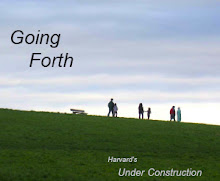Brothers and sisters: You know how one must imitate us. For we did not act in a disorderly way among you, nor did we eat food received free from anyone. On the contrary, in toil and drudgery, night and day we worked, so as not to burden any of you. Not that we do not have the right. Rather, we wanted to present ourselves as a model for you, so that you might imitate us. In fact, when we were with you, we instructed you that if anyone was unwilling to work, neither should that one eat. We hear that some are conducting themselves among you in a disorderly way, by not keeping busy but minding the business of others. Such people we instruct and urge in the Lord Jesus Christ to work quietly and to eat their own food.
--2 Thessalonians 3:7-12
Fr. Raniero Cantalamessa, the Pope's personal preacher, gave a commentary on today's Mass readings that I found interesting. (It was translated and posted on zenit.org.) I've often struggled with the question of whether there would be any real meaning in a lot of the things I could do with my life, work-wise, and it was good for me to read his perspective. Here's an excerpt:
"This Sunday's Gospel [Luke 21:5-19] is one of the famous discourses on the end of the world, which are characteristic of the end of the liturgical year.
"It seems that in one of the first Christian communities, that of Thessalonica, there were believers who drew mistaken conclusions from these discourses of Christ. They thought that it was useless to weary themselves, to work or do anything since everything was about to come to an end. They thought it better to take each day as it came and not commit themselves to long-term projects and only to do the minimum to get by.
"St. Paul responds to them in the second reading: 'We hear that some are conducting themselves among you in a disorderly way, by not keeping busy but minding the business of others. Such people we instruct and urge in the Lord Jesus Christ to work quietly and to eat their own food.' At the beginning of the passage, St. Paul recalls the rule that he had given to the Christians in Thessalonica: 'If anyone will not work, let him not eat.'
"This was a novelty for the men of that time. The culture to which they belonged looked down upon manual labor; it was regarded as degrading and as something to be left to slaves and the uneducated. But the Bible has a different vision. From the very first page it presents God as working for six days and resting on the seventh day. And all of this happens in the Bible before sin is spoken of. Work, therefore, is part of man's original nature and is not something that results from guilt and punishment. Manual labor is just as dignified as intellectual and spiritual labor. Jesus himself dedicates 17 years to the former -- supposing he began to work around 13 -- and only a few years to the latter.
"A layman has written: 'What sense and what value does our ordinary work as laypeople have before God? It is true that we laypeople also do a lot of charity work, engage in the apostolate, and volunteer work; but we must give most of our time and energies to ordinary jobs. If this sort of work has no value for heaven, we will have very little for eternity. No one we have asked about this has been able to give us satisfactory answers. They say: "Offer it all to God!" but is this enough?'
"My reply: No, the value of our work is not only conferred on it by the 'good intention' we put into it or the morning offering we make to God; it also has a value in itself, as a participation in God's creative and redemptive work and as service to our brothers. We read in one of the Vatican II documents, in 'Gaudium et Spes,' that it is by 'his labor [that] a man ordinarily supports himself and his family, is joined to his fellow men and serves them, and can exercise genuine charity and be a partner in the work of bringing divine creation to perfection. Indeed, we hold that through labor offered to God man is associated with the redemptive work of Jesus Christ' (No. 67)."
Subscribe to:
Post Comments (Atom)


No comments:
Post a Comment